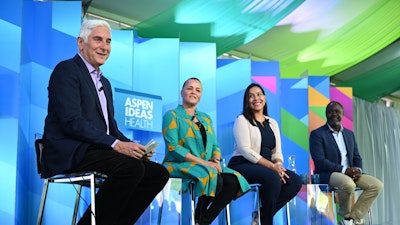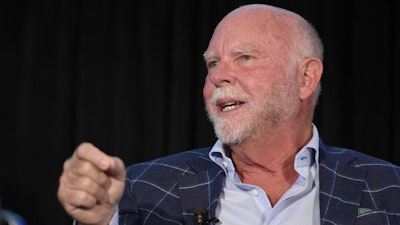Jon LaPook is the chief medical correspondent for CBS News. He is also professor of medicine at NYU Grossman School of Medicine, an internist and gastroenterologist at NYU Langone Health and founder and president of the NYU Langone Empathy Project, which seeks to promote a culture of empathy in medicine. LaPook has contributed to "CBS Evening News," "60 Minutes," "CBS Mornings," "CBS Sunday Morning," "Face the Nation" and “CBS News Radio.” He has won five Emmy and two Edward R. Murrow awards, received a Gracie Award and was named a George Foster Peabody Award finalist for two groundbreaking “60 Minutes” reports investigating sexual abuse of elite gymnasts. He was recognized in the Webby Awards for his documentary series “Doc Dot Com” and was awarded a Drama Desk Award for his work as the medical contributor to “Stars in the House.”
Previously

AI is transforming health, with implications for early disease detection, diagnostic accuracy, medical decision making, precision surgery, and personalized treatments. By spee...

In less-developed countries, parasitic roundworms can colonize the gut and cause significant intestinal problems. But autoimmune diseases, the devastating package of disorders...

Advances in health and medicine no longer rest entirely in the hands of scientists and clinicians. Patients and citizen activists are stepping up to influence research priorit...

Art tours for physicians, a choir for nurses, on-demand meditation for all healthcare workers. Clinical settings everywhere are testing support and wellness interventions to b...

No doctor awakens in the morning determined to discriminate against patients of color, yet their daily clinical decisions too often have that result. Implicit bias—unconscious...

When Rochelle Walensky was appointed director of the US Centers for Disease Control and Prevention (CDC) in December 2020, the pandemic had commandeered much of the agency’s a...

We’ve gone way beyond fitness trackers to collect information about our bodies’ physiological processes. Wearables are being designed to detect early signs of Crohn’s disease...

It’s no secret that chemotherapy is a brutal and all-too-often unsuccessful way to treat cancer, one that harms healthy cells even as it tries to ferret out malignant ones. Th...

More than half the world’s population does not have adequate access to some of the essential health services they need, and 100 million people are pushed into extreme poverty...

If the idea of fecal transplants seems momentarily disquieting, consider that they achieve a 90 percent cure rate for the devastating intestinal infection known as C. diff whe...

When Franklin D. Roosevelt signed legislation giving birth to the National Cancer Institute (NCI) in 1937, he brought a decade of political wrangling to a close and created th...

Dip into a groundbreaking medical memoir by Kurt Newman, president and CEO of Children’s National Medical Center and one of the leading pediatric surgeons in the United States...

The health care industry is one of the largest employers in the United States, and the need for skilled health workers has grown to crisis proportions as the population ages a...

Dr. J. Craig Venter, one of the pioneers in human genome sequencing, talks about coming opportunities to use genomics, advanced technology and machine learning to custom-tailo...


